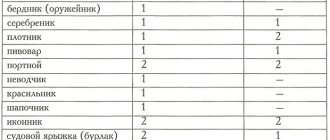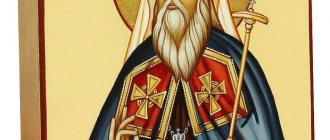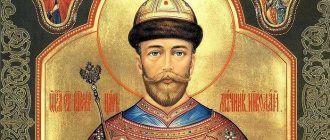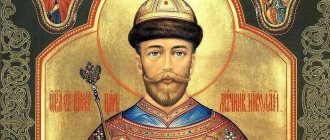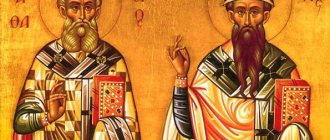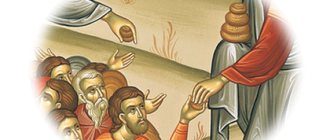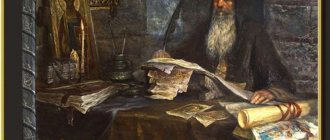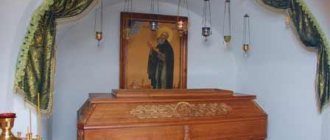From century to century, the teaching about the Christian faith is transmitted by the great messengers of the Lord, saints, theologians, who are increasingly rare in the modern world. Saint Nicholas of Serbia is Bishop Nikola, a glorious son of the Orthodox Church of Serbia, canonized by the Serbian and Russian Orthodox Churches.
Possessing unique talents and God's gifts, which can only be compared with the anointing of the king and prophet David, he left as a legacy to future generations not only spiritual books, a prayer book, but also inspiring conversations to spread the movement of pilgrims, prayer books, and intercessors before God.
Biography of the saint
Details about the life and work of the Serbian saint Nicholas of Serbia can be found by visiting the museum in the monastery consecrated in his name in the Šabac diocese.
Origin and childhood
The saint was born in Western Serbia, into a peasant family on January 5, 1881. The village of Lelic, where the Velimirovics lived, is located next to the Celije monastery. Dragomir, Nikolai's father, brought his son to the parish school at the monastery. He hoped that the boy, having mastered the basics of literacy, would become an intermediary between the villagers and the authorities. Illiterate peasants needed a person who could read and write.
Nikolai showed such diligence in his studies that his teacher advised him to continue his education at a gymnasium in nearby Valjevo. To pay for her studies, Nikola (Serbian) had to earn extra money by teaching lessons at home for families of wealthy citizens. After completing the gymnasium course, Nikolai attempted to apply for a military specialty, but did not pass the medical examination due to thinness and short stature.
Life and service to God
Instead of a military career, the young man determined his future destination by entering the capital's seminary. At the religious institution, Nikolai became the best of the students. His thirst for knowledge was not limited to theological subjects. Over the course of 3 years, the seminarian re-read the works of great Russian, German, and English writers.
A favorite writer was Petar Njegosa, an outstanding Montenegrin bishop and poet of the mid-19th century. Nicholas absorbed his views and thoughts, which became his ideology, and subsequently voiced them in his sermons.
Reading developed in him clarity of thought, the ability to convey the essence of the issue to listeners. After graduating from the seminary, Nikolai worked for some time as a rural teacher. The educational field at this level did not satisfy him. Having secured a scholarship, Nikola went to continue his theological education at the University of Bern (Switzerland), where he entered the Old Catholic Faculty.
At the age of 28, he defended his doctoral dissertation in theology on the fundamental dogma of the Apostolic Church. After Bern, Nikolai studied for a year at Oxford University, where he studied philosophy in depth. He defended his doctoral dissertation in philosophy in Geneva.
At the age of 29, the young man returns to Serbia and receives a position at the Belgrade Seminary. At this time, he began his writing career, publishing articles on issues of faith in newspapers and magazines published by the Serbian Patriarchate. Nikolai is diagnosed with tuberculosis, which forces him to interrupt his work.
The saint made a vow to the Lord that if he was cured, he would become a monk. Nicholas’s prayers were heard by the Savior, and the pathological process in the lungs stopped. Fulfilling his promise to God, Nikolai became a monk at the Rakovica monastery in the suburbs of Belgrade under the name Nikolai.
The following year, with the rank of hieromonk, Nikolai went to the St. Petersburg Theological Academy to study, without informing the leadership of the academy about the available doctoral degrees. The Metropolitan of St. Petersburg and Ladoga, amazed by the erudition of the Serbian clergyman, obtained a scholarship for him and permission to visit Russian Orthodox centers.
The return of the saint to Serbia coincided with the beginning of the First World Fire. The saint considered it his duty to be on the front line, blessing and giving communion to military personnel. At the end of the war, Nikolai becomes the rector of the Orchid monastery.
The ancient monastery was transferred to the ownership of the Serbian local church in 1914. For 14 years, Bishop Nicholas made efforts to restore buildings, attract residents, and spread Orthodox teaching. Vladyka was actively involved in the affairs of the diocese: he visited remote parishes, preached, wrote theological works, and opened orphanages.
In 1934, Nicholas was transferred to serve at the Zic Monastery, the most famous spiritual monastery in Serbia. The energetic and intelligent ruler turned the monastery into the center of Serbian Orthodoxy, which reached its highest peak during this period. Wanting to distract the Serbs from heresy, the bishop organized a religious movement called “Bogomolets”.
One of his poems became the anthem of this movement:
“Help us, Almighty,
We can't do anything without you,
No plowing, no singing,
Nor to defend the truth."
The outbreak of World War II changed the fate of Bishop Nicholas. After the occupation of Serbia, the leader of Nazi Germany issued a form ordering the extermination of the Serbian educated elite, including the spiritual elite. The persons to be destroyed were listed by name. Religious figures who came under repression are the head of the Serbian Orthodox Church Dozic, Metropolitan Zimonjic and Bishop Nikola Velimorovich of Zic.
From 1942 to 1944 they were kept under strict supervision in a monastery near the town of Pancevo. In September 1944, Patriarch Dozic and Bishop Nicholas were transferred to the “labor camp for the re-education of dissidents” in Dachau, where they remained until the end of the war. In May 1945, Dachau prisoners were liberated by the American army.
In Serbia, communists came to power, accusing Bishop Zic of nationalism and anti-Semitism. The road to his homeland was closed to him. The saint first came to England, and then, a year later, emigrated to the United States of America.
In America, Saint Nicholas devoted the last years of his life to writing theological works and a book about the concentration camp. Sometimes he was invited to give lectures at St. Vladimir's Academy in New York, and at Jordanville seminaries in Pennsylvania.
Demise
Saint Nicholas died on March 18 at the age of 75 during a morning appeal to the Lord while staying in Pennsylvania. Nikola Serbsky came here to serve liturgy in a Russian Orthodox monastery. He was buried 9 days later in the church of a Serbian monastery in Illinois.
Episcopal ministry
In 1920, Father Nikolai was ordained Bishop of Ohrid. At this stage of his ministry, he devoted himself to monastic work with even greater zeal, preached a lot, regularly participated in divine services, and was engaged in literary work.
Controlling the clergy entrusted to him and the state of affairs, he constantly moved around the territory of his diocese, visiting the most distant parishes. During such travels, he became acquainted with the needs of the residents and, to the extent possible, provided them with appropriate bishop's assistance: he contributed to the restoration of churches destroyed as a result of the war, helped monasteries, and organized orphanages.
In 1924, the saint, with the blessing of his superiors, took temporary control of the American Diocese (which functioned under the Serbian Patriarchate). He performed this mission until 1926.
In connection with the cooling of many Serbs towards Christian responsibilities, as well as in order to counteract the growing sectarian sentiments in the country, the saint organized and personally led a movement aimed at activating the population in the field of church activities. This movement received the characteristic name “Bogomolcheskoe”. Soon it covered the entire territory of Serbia.
In 1934, Nikolai Serbsky was elevated to the Zhich department. Here, as in the Ohrid diocese, he was engaged in enlightenment, streamlining church life, and regulating the activities of monasteries.
Much effort was made to restore the churches. The saint’s special merit was his contribution to the renovation of the ancient monastery “Žiča,” one of the most famous centers of spirituality and Orthodox culture.
Creative heritage
Nikolai Serbsky left a numerous literary legacy, which is dominated by questions of dogma of faith. An exception is the book “The Unattainable Land,” which, based on what they experienced, tells the story of the trials of the prisoners of Dachau.
The saint wrote the book to refute his own views in the late 40s, when he spoke favorably of Hitler’s activities in Germany. At the same time, he remained a convinced anti-Semite until the end of his life, considering Jews to be accomplices of the devil.
In his writings the saint touched upon:
- moral aspects of faith;
- dogmas of Christianity;
- foundations of Orthodoxy.
His views became the ideological platform of the Serbian fascist movement. All together served as the basis for recognizing the bishop in Serbia in the post-war period as an accomplice of the Nazis, despite persecution and imprisonment in a concentration camp. The Nazis did not touch the highest clergy of the occupied European countries, except for Serbia.
The Birth of a Missionary and the Path of Writing
Overwhelmed by impressions of the places of Russian shrines, Nikola Velimirović begins missionary activity in Serbia, bringing the teachings of Christ to the masses.
Teaching at the Belgrade Seminary, the scientist of theology and philosophy gathers entire halls of seminarians on the subjects he teaches:
- logics;
- psychology;
- philosophy;
- languages.
Belgrade peasants and representatives of the intelligentsia gather at his sermon, and gradually the whole of Serbia knows the name of Nikolai Velimirovich. His books on the Sermon on the Mount, on sin and death, and “The Religion of Njegos” are gaining special recognition.
Book of St. Nicholas of Serbia
The first sermon in Bosnia, which at that time was a political arena where the Austro-Hungarian government began to form a “new Bosnian people,” became a baptism of fire for the already famous missionary. Nikola Velimirović supported the Orthodox believers in Serbia, which aroused dissatisfaction with the new government, which was trying to divide the people. The verdict is a ban on entry into Bosnia.
Reverence
In 1987, Nikola Velimirović was ranked among the locally revered saints of the diocese where he was born. In the spring of 1991, the remains were transported from the USA to the saint’s native village and reburied in the local cemetery. The Bishop of Serbia was recognized as a saint on March 19, 2003 by the Serbian local church. Days of remembrance are March 18 (death) and May 3 (reburial).
At the beginning of May 2004, in the Shabatsky diocese (where the remains of the saint are buried), a monastery was consecrated in honor of St. Nicholas. A museum named after the Bishop was opened in the monastery.
Nikolai's childhood
Nikolai Serbsky was born on December 23, 1880 in the small mountain village of Lelic near the town of Valjevo. He was the eldest son of the deeply pious Dragomir and Katarina Velimirović.
Origin and birth
The family was large; the peasant parents were respected by their neighbors. The boy was baptized at the Chelie monastery and given the name Nikola. All children were raised in love and obedience to God; the mother often took the children to the monastery for services.
Family
From early childhood, children were accustomed to peasant labor; every pair of hands was needed on a large farm. The children were not spoiled in the family, peasant life was hard, the work was exhausting. Nicola's eight younger brothers and sisters died in childhood and adolescence. The eldest also had health problems.
School years
The father himself took his eldest son to a monastery school. It was necessary to teach him to read and write so that at least someone in the family could read subpoenas from the authorities and could respond to them. Studying was very easy for Nikola, diligence and diligence never left him, these qualities made him the best student at school.
Teacher Mikhail Stuparevich often talks with Nikola's parents and convinces them that the boy should continue to study. The parents agreed to this, despite the fact that the farm needed his workers. I dreamed that my eldest son would become a teacher or engineer.
Orthodox texts
In their prayer appeals, Orthodox believers glorify the holy activity of Bishop Nicholas of Serbia.
Troparion
Chrysostom, the preacher of the Risen Christ, the guide of the Serbian crusader family through the ages, the blessed lyre of the Holy Spirit, the word and love of the monks, the joy and praise of the priests, the teacher of repentance, the leader of the pilgrim army of Christ, St. Nicholas of Serbia and pan-Orthodox: with all the saints of the Heavenly Serbia, may the prayers of the One Lover of Man grant peace and unity to our family.
